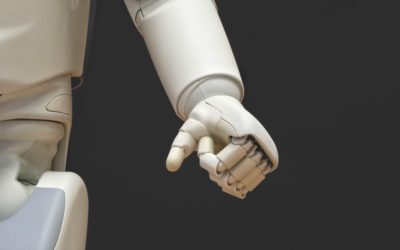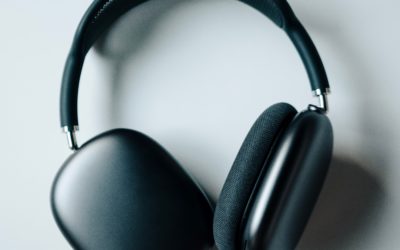Médias
DANS LES NOUVELLES
Le monde nous regarde.
Découvrez une sélection de couvertures médiatiques internationales sur les avancées réalisées par la communauté de recherche mondiale du CIFAR. Pour obtenir une entrevue avec l’un de nos experts, communiquez avec Graeme Wilkes, Vice-président, communications
EXPERTISE DE CONFIANCE
Aller à l’essentiel.
Notre communauté de chercheurs et les membres de notre équipe de direction figurent régulièrement dans les médias les plus fiables du monde, notamment : BBC, The Economist, The Globe and Mail, The Hill Times, National Geographic, Nature, The New York Times et Science.
Octobre 2023
What you eat could be key to improving your mental health, scientists say
CBC
Entretien avec Carolina Tropini
How climate change could make fungal diseases worse
Knowable Magazine
Entretien avec Arturo Casadevall
The Age of AI
Maclean’s
Articles par Jeff Clune, Yoshua Bengio and Jackie C.K. Cheung
It turns out we have a second brain — and it's our gut
National Post
Entretien avec Laurel Trainor
Septembre 2023
The 100 Most Influential People in AI 2023
TIME
Profil des travaux de Yoshua Bengio, Geoffrey Hinton, Yann LeCun, Shakir Mohamed and Raquel Urtasun
Algorithm could predict outcomes after severe brain injuries, Western University researchers find
The Globe and Mail
Entretien avec Adrian Owen
What does it cost to try to stay young forever? Inside the hyped-up world of anti-aging
The Globe and Mail
Entretien avec Brett Finlay
Forgotten Memories May Remain Intact in the Brain
Scientific American
Profil des travaux de Tomás Ryan
Août 2023
Scientists are on a quest to map the human body cell by cell, charting where and why disease happens
The Globe and Mail
Entretien avec Aviv Regev
Why we don’t have to worry about being sucked into the supermassive black hole at the centre of the Milky Way
Science Focus
Article par Katie Mack
If AI becomes conscious, how will we know?
Science
Profil des travaux de Megan Peters, Liad Mudrik, Yoshua Bengio and Adeel Razi
Juillet 2023
Scientists report cosmic hum that may come from clusters of massive black holes
The Globe and Mail
Entretien avec Ingrid Stairs and Luis Lehner
Dr. AI and personal assistants? Here's what Canada could look like in 2050
CTV News
Entretien avec Rahul Krishnan, Vered Shwartz and Jackie Cheung
Canadian AI maven Yoshua Bengio issues stark warning to U.S. Senate
The Globe and Mail
Profil des travaux de Yoshua Bengio
Juin 2023
Is Consciousness More Like Chess or the Weather?
Nautilus
Entretien avec Anil Seth
Gene genius: how the placenta project is unlocking the secrets of our cells
The Guardian
Entretien avec Aviv Regev and Sarah Teichmann
Mum’s microbes might boost brain development of c-section babies
Nature
Profil des travaux de Maria Gloria Dominguez-Bello
‘We want to ensure AI and other technologies are shaping the world we want to see’
The Toronto Star
Entretien avec Golnoosh Farnadi
Mai 2023
‘The Godfather of A.I.’ Leaves Google and Warns of Danger Ahead
New York Times
Entretien avec Geoffrey Hinton
These 4 free apps can help you identify every flower, plant and tree around you
The Washington Post
Entretien avec Jeff Clune
Fungal attacks threaten global food supply, say experts
The Guardian
Profil des travaux de Eva Stukenbrock and Sarah Gurr
The science of today is the economy of tomorrow
The Hill Times
Article d’opinion par Leah Cowen
Avril 2023
AI Chatbots Can Diagnose Medical Conditions at Home. How Good Are They?
Scientific American
Entretien avec Marzyeh Ghassemi
Map of dark matter sheds new light on forces shaping the universe
The Globe and Mail
Entretien avec Richard Bond and Mark Halpern
How welcoming are communities to immigrants? Researchers design a new tool to find out
The Globe and Mail
Entretien avec Victoria Esses
AI science search engines are exploding in number — are they any good?
Nature
Entretien avec Meghan Azad
Mars 2023
How Loneliness Reshapes the Brain
Quanta Magazine
Profil des travaux de Danilo Bzdok
Instagram debuts age recognition AI in Canada. Some experts are skeptical
The Toronto Star
Profil des travaux de Melvyn Goodale
Dan Breznitz’s innovation prescription: Canada must forge its own economic path
The Logic
Entretien avec Dan Breznitz
From deepfakes to Bing's chatbot, AI-generated content is everywhere. Here's how to spot it.
Business Insider
Entretien avec Chelsea Finn
Février 2023
Frightened by fungal zombies in The Last of Us? The real-life threat is terrifying, too
CBC
Entretien avec Leah Cowen and Arturo Casadevall
Researchers May Have Found a Way to Slow Human Aging
TIME
Profil des travaux de Daniel Belsky
NASA’s Webb Telescope Is Close To Detecting ‘Cosmic Dawn’
Forbes
Entretien avec Richard Ellis
Will ChatGPT change everything? 5 AI experts weigh in
Toronto Star
Entretien avec Graham Taylor
Janvier 2023
From mushrooms to machine learning — CIFAR drills the deepest strata of innovation
Research Money
Entretien avec Stephen Toope
Conversations with Alexa: How robots are helping Canada’s aging population connect
Global News
Entretien avec Goldie Nejat
U of T researchers used AI to discover a potential new cancer drug — in less than a month
Toronto Star
Entretien avec Alán Aspuru-Guzik
The Search for Extraterrestrial Life as We Don’t Know It
Scientific American
Entretien avec Heather Graham
Un avenir incertain
La Presse
Entretien avec Yoshua Bengio
Decembre 2022
It’s time for Canada to be the global research leader of tomorrow
The Hill Times
Article d'opinion par Stephen Toope et Alan Bernstein
The Year Without Germs Changed Kids
The Atlantic
Entretien avec Brett Finlay, Maria Gloria Dominguez-Bello et Martin Blaser
Scientists Increasingly Can’t Explain How AI Works
Vice
Entretien avec Jeff Clune
Donation of $26-million boosts cosmic research in Montreal
The Globe and Mail
Profil des travaux de Victoria Kaspi et Matt Dobbs
Novembre 2022
As Doubts Grow Over Self-Driving Vehicles, This Ambitious Upstart Rolls Out Its First Robot Trucks
Forbes
Profile des travaux de Raquel Urtasun
Canada's welcoming artificial intelligence research ecosystem
Nature
Entretien avec Elissa Strome
How a hunt for secret nuclear weapon tests led to the discovery of the most violent explosions in the Universe
Science Focus
Article par Katie Mack
What quantum technology means for Canada’s future
The Conversation
Article d'opinion par Stephanie Simmons
Octobre 2022
The big idea: do we all experience the world in the same way?
The Guardian
Article by Anil Seth
Missing element for life may be present in ocean of Saturn's moon Enceladus
Space.com
Profile of work by Jihua Hao
Covid-19 appears to affect memory less than other aspects of cognition
New Scientist
Profile of work by Adrian Owen
How the ‘Black Death’ Left Its Genetic Mark on Future Generations
The New York Times
Profile of work by Hendrik Poinar
Neurons in a dish learn to play Pong — what’s next?
Nature
Profile of work by Adeel Razi
Septembre 2022
The U.S.’s huge investment in science and innovation demands an equivalent approach in Canada
The Globe and Mail
Op-ed by Alan Bernstein & Meric Gertler
Canadian researchers using machine learning to mitigate effects of climate change
CBC
Profile of work by David Rolnick
In Search of the Best Milk Recipe for Preemies’ Gut Bacteria
The Scientist
Profile of work by Meghan Azad
Low-calorie sweeteners might not be as good for us as we thought
National Geographic
Profile of work by Eran Elinav
What's the right age to get a smartphone?
BBC
Interview with Candice Odgers
Août 2022
Canada's life sciences pipeline is clogged. Here's how we can fix it
The Globe and Mail
Op-ed by Leah Cowen
Four rising stars who are reshaping nanoscience
Nature
Profile of work by Zakaria Al Balushi
Self-Taught AI Shows Similarities to How the Brain Works
Quanta Magazine
Interview with Blake Richards
No music training? No problem: Even novices intuit complex music theory
Science
Profile of work by Isabella Peretz
Juillet 2022
Those Beautiful James Webb Space Telescope Images Are Just the Beginning
Slate
Interview with Katie Mack
What Big Data Says About Psychedelics
Psychology Today
Article by Danilo Bzdok
Old computer technology points the way to future of quantum computing
The Record
Interview with Stephanie Simmons
Discovery of 'young' deep groundwater tells surprising tale
Phys Org
Profile of work by Jennifer McIntosh
In Experiment, AI Successfully Impersonates Famous Philosopher
Vice
Interview with Daniel Dennett




